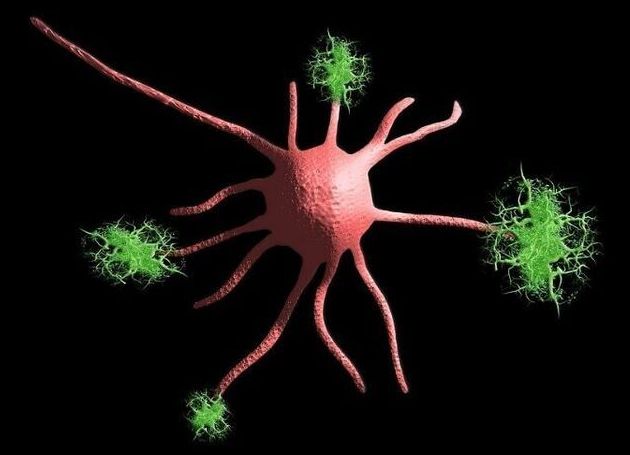HSE doesn’t expect health services to return to normal for “a number of weeks” as it continues to deal with the fallout of the ransomware attack against critical IT infrastructure.



Despite FSR being open source and cross-vendor, collaboration is sorely lacking.
Following AMD’s announcements about its open source, cross-vendor upscaling technology, FidelityFX Super Resolution, Radeon’s vice president & general manager Scott Herkelman has reminded followers on Twitter that Nvidia will have to do its part to make the tech worthwhile on its GPUs.
Race on.
Best PC racing wheels : perfect for any circuit. Best VR headset: which set is right for trackdays?
French physicist Gabriel Lippmann created the first color photographs in 1891.

Linux gamers will finally get one of Nvidia’s best features.
Nvidia has announced that it’s working with Valve to bring its DLSS technology to Linux gamers using Proton to play games meant for Windows. The tech allows for running at higher resolution and settings, while maintaining higher frame rates.

Both arts and sciences advance through open-minded iterations. The alternative of staying within traditional boundaries suppresses the exploration of new territories. As Oscar Wilde said: “Consistency is the last refuge of the unimaginative.”
Recognizing the crucial role that imagination plays in advancing both arts and sciences would translate to a culture that fosters innovation by rewarding creativity. Conventional groupthink could be circumvented by populating selection committees of funding agencies with creative individuals rather than with traditional thinkers. A culture of innovation would also benefit from overlap spaces where scientists and artists interact. In deriving his theory of gravity Albert Einstein was inspired by the philosopher Ernst Mach, and Einstein’s new notions of space and time inspired Picasso’s paintings.
Creativity in arts and sciences establishes a backdrop for human existence, as the content it invents gives pleasure and meaning to our lives. The human act of creation is an infinite-sum game, from which all of us benefit. And we can all participate in the creative process, as long as we follow Wilde’s advice: “Be yourself; everyone else is already taken.”


Scientists in South Korea have made a breakthrough in battery research that could help us bust through a key bottleneck in energy storage. The team’s advance overcomes a technical issue that has held back highly promising lithium-metal battery architecture and could pave the way for batteries with as much as 10 times the capacity of today’s devices.
The reason lithium-metal batteries hold so much promise is because of the excellent energy density of pure lithium metal. Scientists hope to swap out the graphite used for the anode in today’s lithium batteries for this “dream material,” though this comes with some complicated problems to solve.
One of the key issues relates to needle-like structures called dendrites, which form on the anode surface as the battery is charged. These penetrate the barrier between the anode and the battery’s other electrode, the cathode, and quickly cause the battery to short-circuit, fail, or even catch fire.
The researchers started with a sample taken from the temporal lobe of a human cerebral cortex, measuring just 1 mm3. This was stained for visual clarity, coated in resin to preserve it, and then cut into about 5300 slices each about 30 nanometers (nm) thick. These were then imaged using a scanning electron microscope, with a resolution down to 4 nm. That created 225 million two-dimensional images, which were then stitched back together into one 3D volume.
Machine learning algorithms scanned the sample to identify the different cells and structures within. After a few passes by different automated systems, human eyes “proofread” some of the cells to ensure the algorithms were correctly identifying them.
The end result, which Google calls the H01 dataset, is one of the most comprehensive maps of the human brain ever compiled. It contains 50000 cells and 130 million synapses, as well as smaller segments of the cells such axons, dendrites, myelin and cilia. But perhaps the most stunning statistic is that the whole thing takes up 1.4 petabytes of data – that’s more than a million gigabytes.

The idea is simple: decades of research have found certain genes that seem to increase the chance of Alzheimer’s and other dementias. The numbers range over hundreds. Figuring out how each connects or influences another—if at all—takes years of research in individual labs. What if scientists unite, tap into a shared resource, and collectively solve the case of why Alzheimer’s occurs in the first place?
The initiative’s secret weapon is induced pluripotent stem cells, or iPSCs. Similar to most stem cells, they have the ability to transform into anything—a cellular genie, if you will. iPSCs are reborn from regular adult cells, such as skin cells. When transformed into a brain cell, however, they carry the original genes of their donor, meaning that they harbor the original person’s genetic legacy—for example, his or her chance of developing Alzheimer’s in the first place. What if we introduce Alzheimer’s-related genes into these reborn stem cells, and watch how they behave?
By studying these iPSCs, we might be able to follow clues that lead to the genetic causes of Alzheimer’s and other dementias—paving the road for gene therapies to nip them in the bud.
